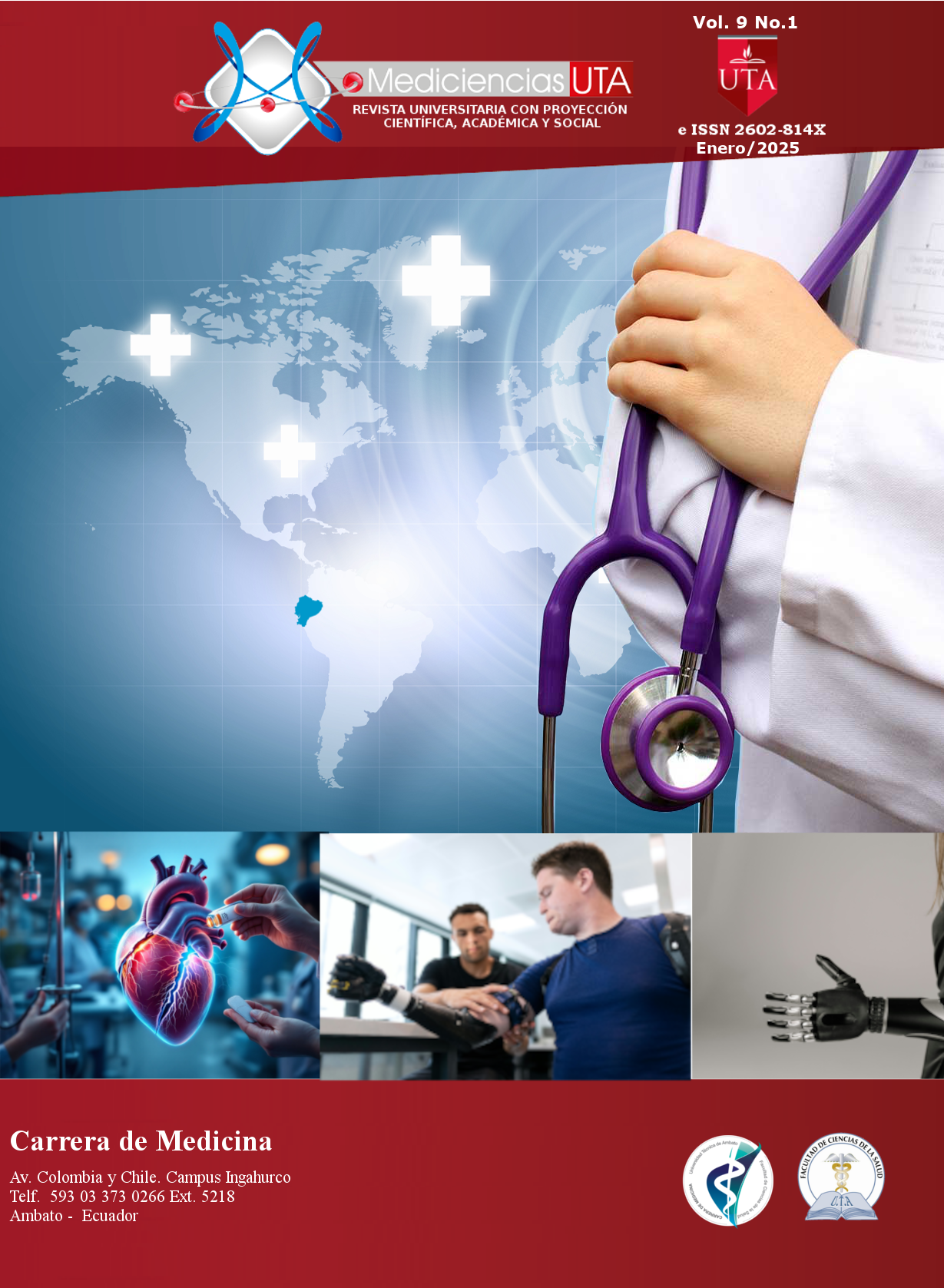Incidence of Technological Tools on the Academic Performance of High School Students
Main Article Content
Abstract
This study analyzes the contribution of technological tools to the academic performance of high school students. Through a literature review, it addresses the importance of ICT (Information and Communication Technologies) in the educational context, the opportunities they offer to enhance the teaching-learning process, and the challenges associated with their implementation. Additionally, the study examines the necessary conditions to achieve effective integration of these tools in classrooms. Materials and Methods: This study considers research that explores the use of digital platforms in secondary education and their impact on academic performance between 2017 and 2024. The included studies encompass the use of technological tools in learning environments, as well as the challenges faced by students and teachers. The review focuses on identifying the main tools used, comparing them with traditional methodologies, and examining the factors that determine their effectiveness. Results: The review results are grouped into three categories. First, the highlighted studies indicate that ICT can improve academic performance, especially in areas such as mathematics, provided that there are conditions of equitable access and proper teacher preparation (12, 14, 17). Second, some research reveals that the use of ICT without pedagogical support does not guarantee substantial improvements, emphasizing the importance of methodological design and teacher support (13, 16). Finally, studies conducted during the pandemic show that ICT enabled the continuation of education, but connectivity gaps limited their overall impact (15, 19). Discussion: There is a consensus that ICT offers significant advantages for enhancing learning and classroom interaction. However, it is also evident that continuous teacher training and adequate technological infrastructure are necessary to ensure their effective integration. Moreover, the pandemic highlights the importance of designing strategies that combine digital and traditional methodologies, ensuring educational inclusion and maximizing the positive impact of ICT on academic performance. Conclusion: Technological tools contribute to the academic performance of high school students when implemented in a conscious and structured manner, with adequate teacher support and a solid infrastructure. However, their impact depends on the context of implementation and the pedagogical guidance provided. Therefore, it is necessary to continue researching the conditions that optimize their use to ensure that these tools foster meaningful and sustainable learning.
Downloads
Article Details

This work is licensed under a Creative Commons Attribution-NonCommercial-ShareAlike 4.0 International License.



